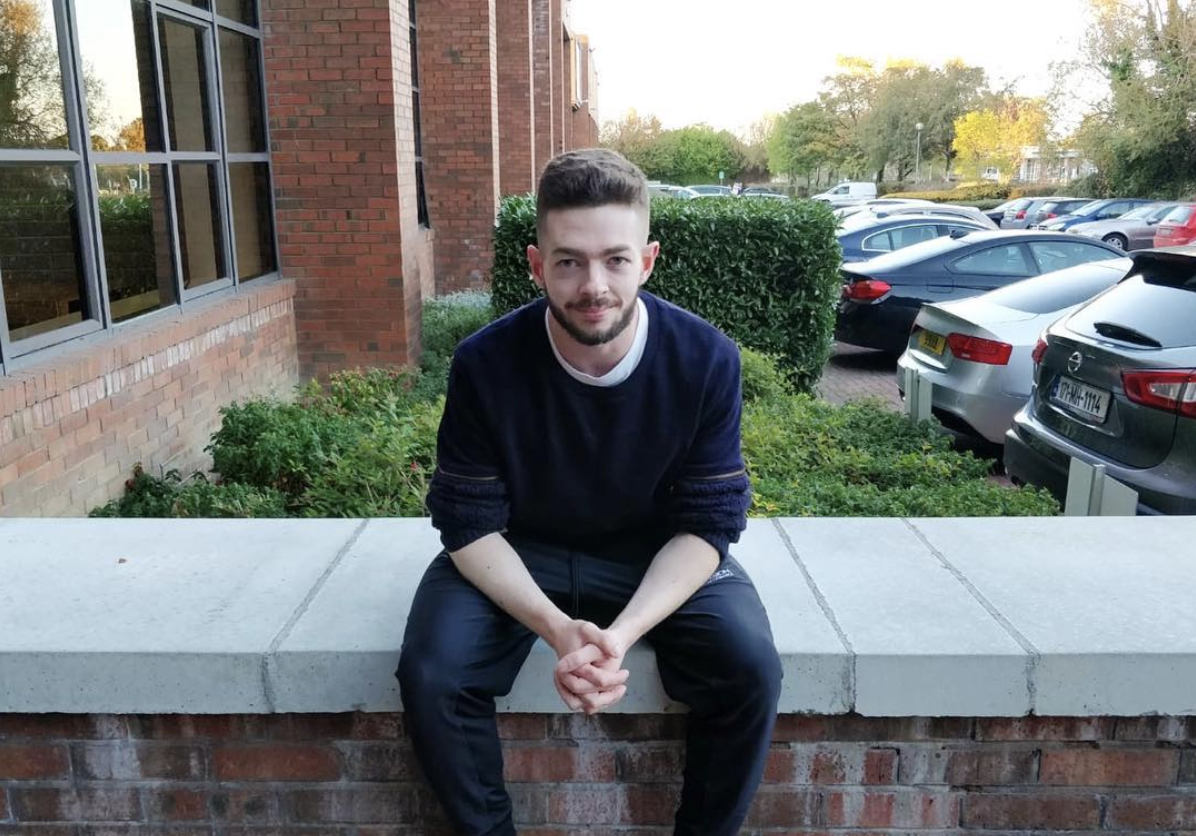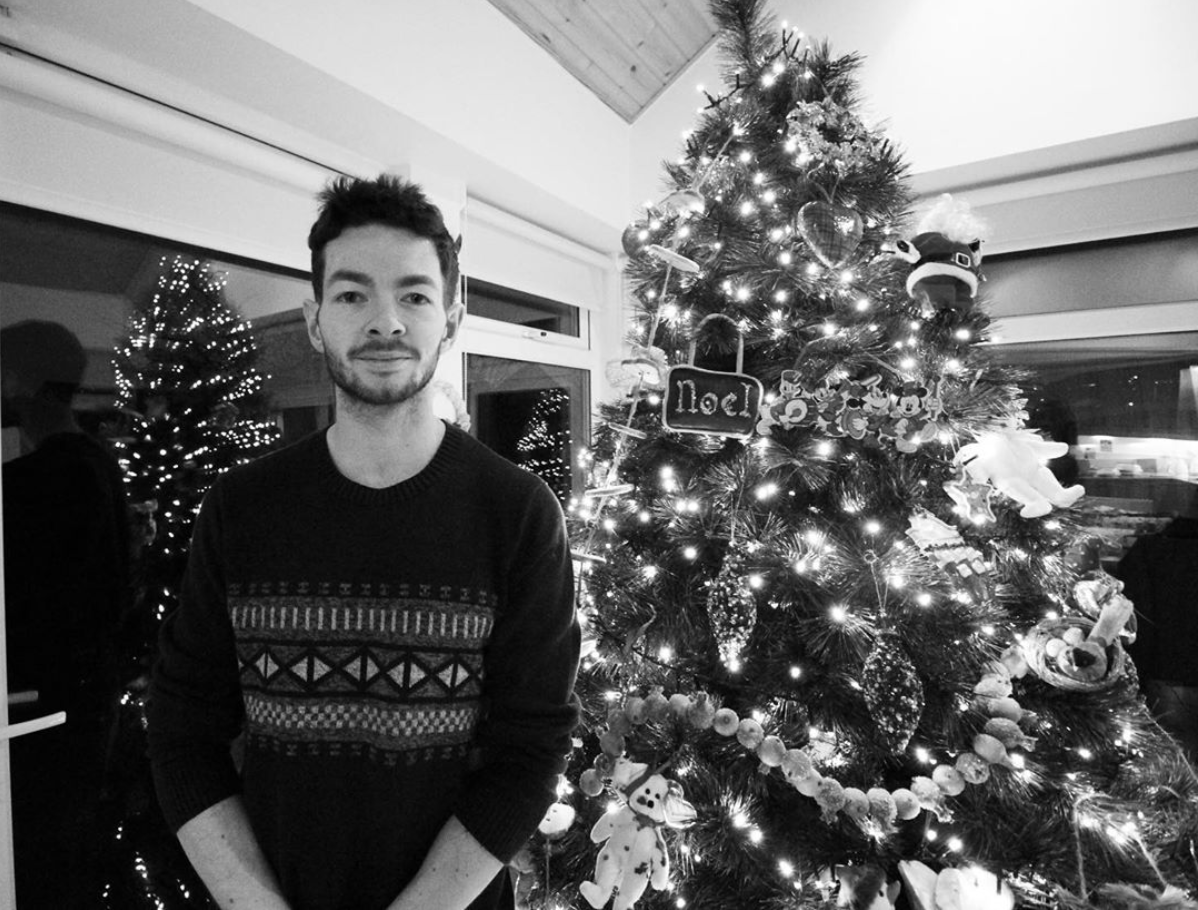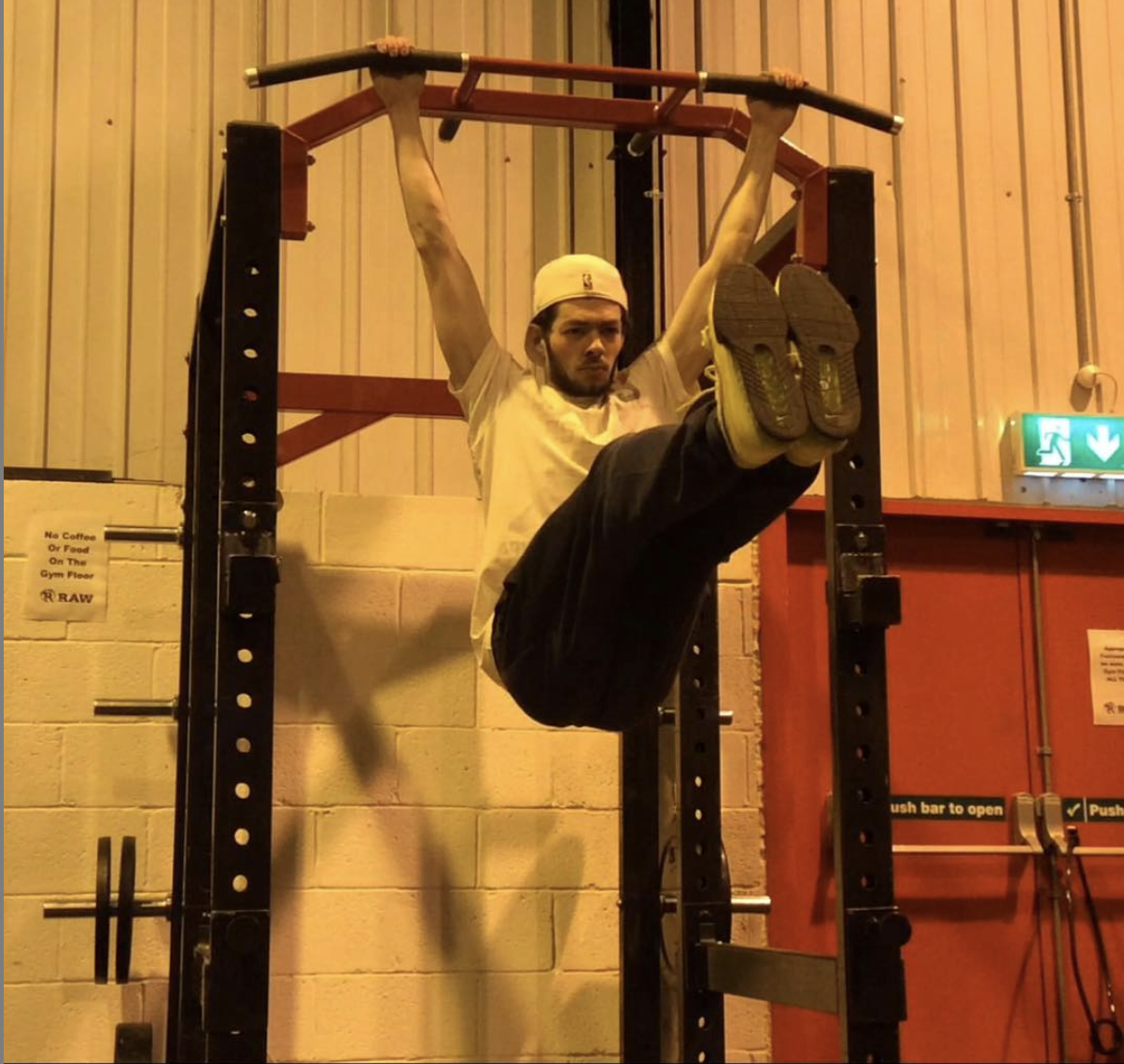

Share
21st December 2019
09:00am GMT

 It was during his fifth year in secondary school that Shane begin restricting his meals and portion sizes and so began the start of his eating disorder journey.
"I had like really, really messed up little patterns. Like, I would literally have the smallest lunch ever in the world with me and I would consider it an accomplishment if I got home without touching it. And I would have my one bottle of cordial which was a lifesaver. That was the only thing that I would be having.
"There was a day in fifth year when I was coming out of school with a fifth year bag on your back so probably it weighed more than me and got into the car, utterly drained."
The consequences of Shane's new found eating habits did not go unnoticed by those closest to him. As he continued to restrict his meal size in an attempt to keep his body weight as low as possible, his mother grew more concerned about the health and wellbeing of her son.
"That night was the first night I couldn't keep my head up doing my homework and my mother, I think, was beginning to think 'Okay, there's something not quite right here. You don't have to go to school tomorrow. But will you go to the doctor?' and I was like fuck it yeah, it's too much... I think the following day, we discovered how bad it was."
It was during a visit to his local doctor that Shane's extreme eating habits were no longer his own little secret.
"I was in my GP in Sandyford village with my mom and the doctor and I was made take off my top. I didn't realise there was anything up and they weighed me. They were shocked beyond belief and it became very apparent.
"It didn't hit me then but it hit me later on. I just broke down I was like 'Jesus Christ, like what is going on right here? What have I done?' But like even if with a 'What have I done?' It doesn't really correct anything upstairs."
It was during his fifth year in secondary school that Shane begin restricting his meals and portion sizes and so began the start of his eating disorder journey.
"I had like really, really messed up little patterns. Like, I would literally have the smallest lunch ever in the world with me and I would consider it an accomplishment if I got home without touching it. And I would have my one bottle of cordial which was a lifesaver. That was the only thing that I would be having.
"There was a day in fifth year when I was coming out of school with a fifth year bag on your back so probably it weighed more than me and got into the car, utterly drained."
The consequences of Shane's new found eating habits did not go unnoticed by those closest to him. As he continued to restrict his meal size in an attempt to keep his body weight as low as possible, his mother grew more concerned about the health and wellbeing of her son.
"That night was the first night I couldn't keep my head up doing my homework and my mother, I think, was beginning to think 'Okay, there's something not quite right here. You don't have to go to school tomorrow. But will you go to the doctor?' and I was like fuck it yeah, it's too much... I think the following day, we discovered how bad it was."
It was during a visit to his local doctor that Shane's extreme eating habits were no longer his own little secret.
"I was in my GP in Sandyford village with my mom and the doctor and I was made take off my top. I didn't realise there was anything up and they weighed me. They were shocked beyond belief and it became very apparent.
"It didn't hit me then but it hit me later on. I just broke down I was like 'Jesus Christ, like what is going on right here? What have I done?' But like even if with a 'What have I done?' It doesn't really correct anything upstairs."
 Those suffering with an eating disorder are often unaware of just how dangerous their habits can be and the effects it can have. For Shane, this was no different.
"It's just mad when you're that oblivious and you don't have the information and there's something literally taking over upstairs. You're not in control and you don't see the severity of the situation," he says.
As a result of his bulimia, Shane suffers from acid damage to his throat and oesophagus and stomach tension from his induced vomiting. These are issues that Shane will face for life. Other complications caused by bulimia include dental problems, muscle spasms, irregular or absent periods, bone problems and brittle fingernails.
Through therapy and the help and support of his family, Shane soon began his road to recovery, slowing introducing more food into his diet. A fear of food is something he still faces 13 years after his first encounter with his demons.
"I think it was only as time went on I was kind of subconsciously going, 'Oh I'll have a bit of this and that will be eating a little bit more...'
"I still think that down the years there has been an inherent fear of food and an inherent fear especially of portion size, which still to this day, that's still something that gets me a little bit nervy.
"There's still foods that I enjoy. It's the actual process of getting it into me that is like, it's a physical chore. I envy people who go 'I just I love food'. I fucking wish I was like that."
For Shane, his recovery process started to make headway when he discovered a new found love for the gym.
Those suffering with an eating disorder are often unaware of just how dangerous their habits can be and the effects it can have. For Shane, this was no different.
"It's just mad when you're that oblivious and you don't have the information and there's something literally taking over upstairs. You're not in control and you don't see the severity of the situation," he says.
As a result of his bulimia, Shane suffers from acid damage to his throat and oesophagus and stomach tension from his induced vomiting. These are issues that Shane will face for life. Other complications caused by bulimia include dental problems, muscle spasms, irregular or absent periods, bone problems and brittle fingernails.
Through therapy and the help and support of his family, Shane soon began his road to recovery, slowing introducing more food into his diet. A fear of food is something he still faces 13 years after his first encounter with his demons.
"I think it was only as time went on I was kind of subconsciously going, 'Oh I'll have a bit of this and that will be eating a little bit more...'
"I still think that down the years there has been an inherent fear of food and an inherent fear especially of portion size, which still to this day, that's still something that gets me a little bit nervy.
"There's still foods that I enjoy. It's the actual process of getting it into me that is like, it's a physical chore. I envy people who go 'I just I love food'. I fucking wish I was like that."
For Shane, his recovery process started to make headway when he discovered a new found love for the gym.
 His brother Ben, who was working as a personal trainer, saw the severity of Shane's disorder when he continued to control his portion sizes while out for a family meal in his favourite restaurant. Determined to help his brother, Ben encouraged Shane to join him in the gym and work together on fitness, strength, increasing his food and creating a more positive body image.
"I'd see my brother put up all these lifting videos because he was getting super strong for his age. He was like 'Dude, you need to try and increase in some way and if you can increase in some way, it's going to help you get over this fear of food. You're going to see yourself in the mirror getting bigger, and you're going to get stronger.'"
With his brother as his PT, Shane began training in their local gym, which encouraged him to eat well and develop a love and appreciation for his body, something he hadn't experienced in a very long time.
Now 13 years on from his original diagnosis, Shane is determined to bring awareness to the dangers of eating disorders and in particular eating disorders and men. Through his YouTube channel and Instagram page, he uses his online platform to promote awareness for eating disorder recovery and normalise conversation around the topic, nicknaming himself 'The dude with the broken stomach'.
On his decision to speak so honestly and publicly about his recovery, Shane says: "I just think that there's a lot of shit going on in the world and if speaking about it can help even one person... I had a couple of people in the gym say to me 'Oh, I've been through this or I've been through that'. I put up to YouTube videos and they're like 'Thank you for putting that out'.
"And that's awesome."
For more information on anorexia, bulimia and understand eating disorders visit bodywhys.ie or call 01 210 7906.
If you are struggling with your mental health, or if you're worried about a loved one, here are a number of resources you can use.
His brother Ben, who was working as a personal trainer, saw the severity of Shane's disorder when he continued to control his portion sizes while out for a family meal in his favourite restaurant. Determined to help his brother, Ben encouraged Shane to join him in the gym and work together on fitness, strength, increasing his food and creating a more positive body image.
"I'd see my brother put up all these lifting videos because he was getting super strong for his age. He was like 'Dude, you need to try and increase in some way and if you can increase in some way, it's going to help you get over this fear of food. You're going to see yourself in the mirror getting bigger, and you're going to get stronger.'"
With his brother as his PT, Shane began training in their local gym, which encouraged him to eat well and develop a love and appreciation for his body, something he hadn't experienced in a very long time.
Now 13 years on from his original diagnosis, Shane is determined to bring awareness to the dangers of eating disorders and in particular eating disorders and men. Through his YouTube channel and Instagram page, he uses his online platform to promote awareness for eating disorder recovery and normalise conversation around the topic, nicknaming himself 'The dude with the broken stomach'.
On his decision to speak so honestly and publicly about his recovery, Shane says: "I just think that there's a lot of shit going on in the world and if speaking about it can help even one person... I had a couple of people in the gym say to me 'Oh, I've been through this or I've been through that'. I put up to YouTube videos and they're like 'Thank you for putting that out'.
"And that's awesome."
For more information on anorexia, bulimia and understand eating disorders visit bodywhys.ie or call 01 210 7906.
If you are struggling with your mental health, or if you're worried about a loved one, here are a number of resources you can use.Explore more on these topics: